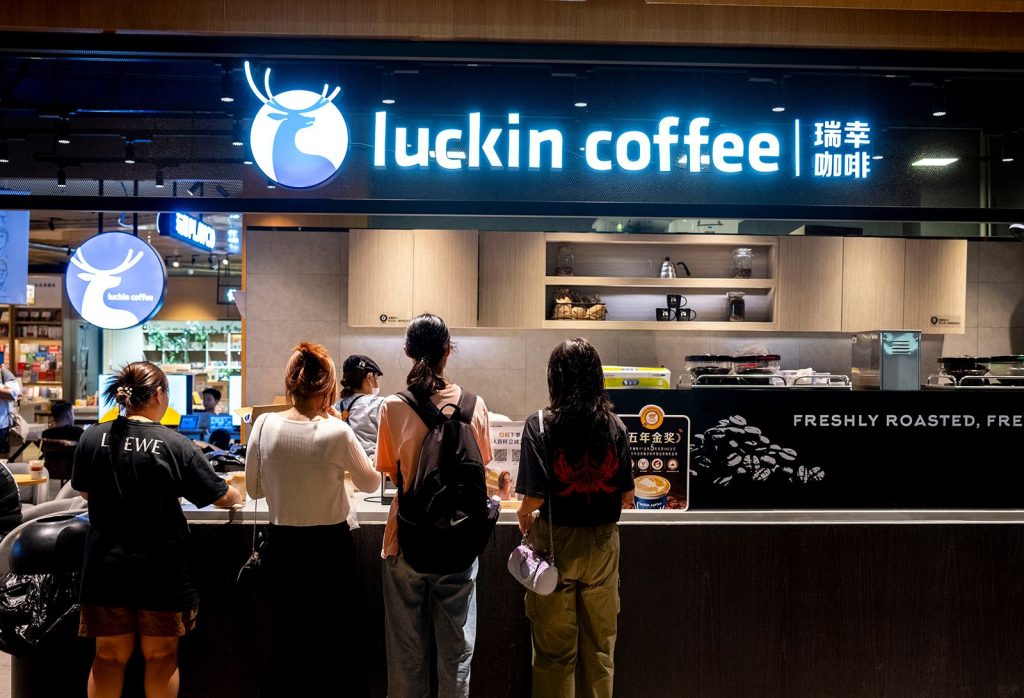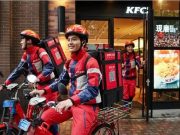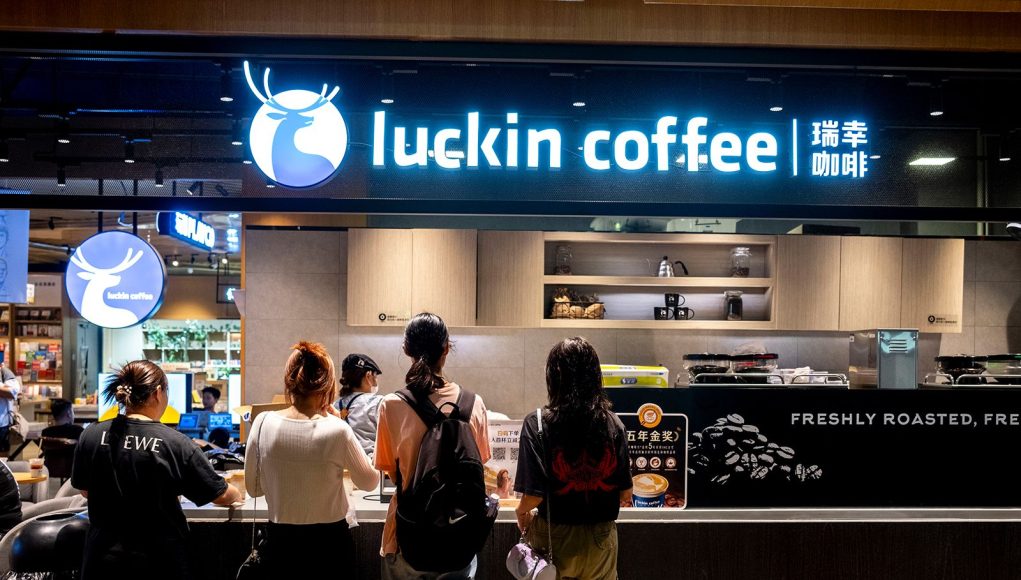(SINGAPORE 2025.08.21)The fierce and ongoing war among China’s food delivery platforms, particularly the three major players, since February to outrival each other in expanding customer base and increasing order volume, is now projected to cost them around 200 billion yuan (approximately S$36 billion) in giving out consumer and supplier discounts and subsidies.
Interestingly, the true winners of this cutthroat war, which unmistakably emerged from it with a larger pool of loyal customers and stronger generation of revenue, are not any of the platforms but the vendors which supply them food, led by Luckin Coffee and KFC, according to Chinese media.
Though the hype of “zero-payment orders” to attract customers has ended, Taobao Flash Sale and Meituan, two of the major three platforms, are still issuing plenty of high-value discount coupons every day to customers.
Data shows that since June Meituan’s average daily food delivery orders have remained above 90 million, hitting 120 million on July 5. From August 7 to 9, Taobao Flash Sale’s orders surpassed 100 million daily over the three days, overtaking Meituan for the first time.

Recently, JD.com, the third biggie, reported that its Q2 2025 revenue reached 357 billion yuan, up 22.4% year-on-year, marking its fastest growth in nearly three years. Its food delivery business hit 25 million daily orders in Q2 2025. Its service now spans 350 cities across the country, featuring over 1.5 million high-quality restaurants on its platform.
The food delivery war has been in full swing between the three, but the true winners in the war are outside the group, claimed 36 Kr, a news site that reports on technology and entrepreneurship in China.
Taobao Flash Sale’s recent offer of discounts for tea drinks have quickly boosted sale of this beverage, with Luckin Coffe and Cotti Coffee gaining the most from the promotion. On August 7. Luckin Coffee’s “First Milk Tea of Autumn” marketing campaign drove single-day sales to over 20 million cups, far outpacing other similar freshly made tea drinks.
According to Luckin’s financial report for the first half of 2025, its total revenue reached about 21 billion yuan, up 44.6% year on year, while net profit soared 125.4% to 1.776 billion yuan. Luckin added 2,109 net new stores in Q2 globally, bringing its total to 26,206. In China alone, 2,085 new stores were added, reaching 26,117. Overseas, Luckin added 24 new stores, bringing the total to 89: 63 self-operated stores in Singapore, 2 in the US, and 24 franchised stores in Malaysia.
At a telephone conference, Luckin’s CEO Guo Jinyi discussed the opportunities and challenges posed by the food delivery battle. He noted that the Q2 discount offensives across platforms enabled consumers to buy coffee at more affordable prices, hence spurring strong demand.
This put Luckin’s supply chain flexibility, service stability, and delivery reliability to test. But with its strengths in store network, supply chain, and delivery systems, Luckin became a preferred partner of major delivery platforms.
Guo added: “In fact, the ruthless discounting created a favorable market condition that Luckin could take advantage of to grow its user base and activities.”
Another beneficiary of the war is Yum China, which owns KFC, Pizza Hut, and Taco Bell in China, as well as the restaurant chains Little Sheep Huang Ji Huang. Yum also partners with Italian coffee company Lavazza to grow the latter’s coffee presence in China.
On August 11, Yum China reported its 2025 interim results: first-half revenue hit US$5.768 billion (S$7.420 billion), with delivery sales up 17% year-on-year. Q2 results were equally impressive: total revenue rose 4% year-on-year to US$2.8 billion.
Yum added 336 new stores in Q2, bringing the total to 16,978, including 12,238 KFC and 3,864 Pizza Hut outlets. CEO Joey Wat highlighted loyalty programs and its super app as its strategic strengths, while leveraging the delivery platforms to attract incremental traffic.
Meanwhile, KFC alone posted operating profit of US$292 million, up 11% year on year, with delivery sales soaring 25%. Pizza Hut’s operating profit grew 16% to $46 million, also a Q2 record.
Delivery now accounts for about 45% of revenue for both KFC and Pizza Hut, fuelled by the platforms’ discounts incentives. Yum’s own digital channels have also retained 90 million active loyalty members.
Surprisingly, even Subway—long criticized for poor taste—has expanded to top 1,000 stores in China thanks to the food delivery boom.
Who are the biggest losers in this ongoing battle? Instant food products, as freshly made drinks and low-cost meal combos dominate. For example, a 2-yuan cup from Mixue Bingcheng would beat an overpriced bottled iced tea, and a hot meal under 10 yuan outshines instant noodles. Young consumers are voting with their wallets.
Instant noodles are also on the decline. From 2020 to 2023, consumption fell by 4 billion packets. In 2024, consumption dropped to 43.8 billion packets, and Q2 2025 sales fell 8.9% year on year
Even instant noodle’s industry giant Master Kong was hit: its 2025 half-year revenue shrank by 1.1 billion yuan, with instant noodle sales down 2.53% to about 13 billion yuan, a drop by 350 million yuan. Its distributor network shrank by 3,409 outlets in six months.
Young consumers are abandoning unhealthy instant noodles in favor of affordable delivery, ready-to-cook, and self-heating meals. A 6-yuan hot meal with meat and veggies offers better value than a packet of noodles, noted 36 Kr.
In this food delivery war, some are racing ahead while others fall behind. This war isn’t over, and the race is reshuffling China’s food scene and changing the food preference of the people, especially the young, 36 Kr pointed out.





































